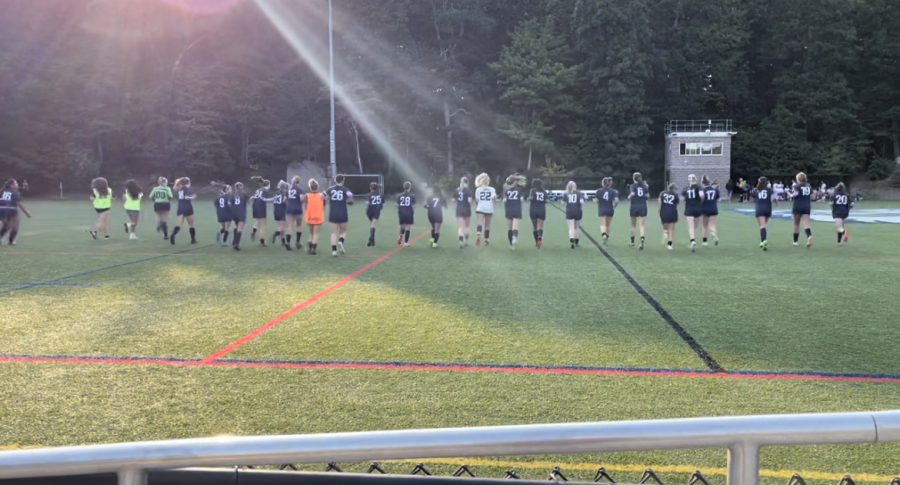The Truth Behind the Mind of an Athlete
New Athletic Director Shares Her Experience.
Back in March, Stanford goalie, Katie Meyer was found dead in her dorm room due to self-inflicted wounds according to Today News Network. In 2019, Meyer won Stanford the national championship and had her whole soccer career ahead of her. She was named twice as a Pacific- 12 Conference Fall Honor Roll, with a 4.3 GPA. Her teammates described her as a “larger than life team player in all her pursuits.” Prior to her death, her parents didn’t see any red flags or suspect she was feeling this way. They knew she had a lot on her plate, but they described her as happy and in great spirits. Many people always assume after hearing about her death that she had everything to live for, and she was being selfish by ending her life, this is not the case at all. Lots of athletes suffer from mental health issues, and do not have a good outlet to help them cope from going to school 5 days a week to almost 7 days a week of continuous practices and games. The stress and pressure that college athletes have to deal with on a daily basis is too much for a young adult to handle. This can lead to much bigger problems. This type of problem doesn’t just exist in college, as this can also apply to young high school athletes juggling lots of the same activities. High school athletes may not have as much pressure as those in college, but that doesn’t make their situation any less important.
At Morgan, we have 3 different support staff, and 4 in-school counselors. On the Morgan School website, there are a number of links and phone numbers provided if you ever find yourself in need of some help. Athletics is a large part of the Morgan spirit, offering 10 girls and boys sports over the course of the school year with most practices and games held after school and on the weekend. Playing sports doesn’t necessarily mean students don’t suffer from mental health. It could actually increase the chances of mental health problems. This comes from the pressure of competing, juggling school life, and social life.
I interviewed w Athletic Director, Meagan Sears, on how she feels about this topic and why she feels mental health is important to athletes.
Mrs. Sears states that she does think everyone struggles with the workload that comes with school and social life. She said,s “Even in your adult life when there is a lot going on, its hard to balance and have a work/life balance and also have the school and friendships and academics piece.” Sears said she did struggle with issues that every high school student athlete struggles with. “Its a skill that you start to develop from middle school to high school Time management is such a hard thing to learn you have to figure out what works best for you.” Students begin to develop time management skills of juggling homework, sports and their social life at such a young age. This type of stress can be hard on a developing teen.
Mrs. Sears said, “Reaching out is not a sign of failure. It is a sign that you understand where you are mentally, and want help. We like to feel that we can do these things on our own.” Mrs. Sears wants students to know that “asking for help isn’t a sign of failure. It is a sign that ‘Hey listen you are self reflecting. You are asking for help.” Mrs. Sears admits that she felt like she should’ve asked for help and touched base throughout her years in high school and college, but says it is a part of growing up and maturing.
At Morgan there are always outlets to go to about the stress that comes with school, the staff is always here to help. It does take time to figure out a balance that is right for you, but when you need help always reach out. The door is always open.

Hi! My name is Logan Pernal. I am a senior here at Morgan, class of 2023. This year is my first time taking Journalism, I joined this class because I wanted...












Kelley Edwards • Sep 15, 2022 at 10:14 am
Such an important topic Logan! It would be awesome to keep this an issue that is frequently talked about. College Softball lost a player last year also. Thanks for bringing this to the paw print!